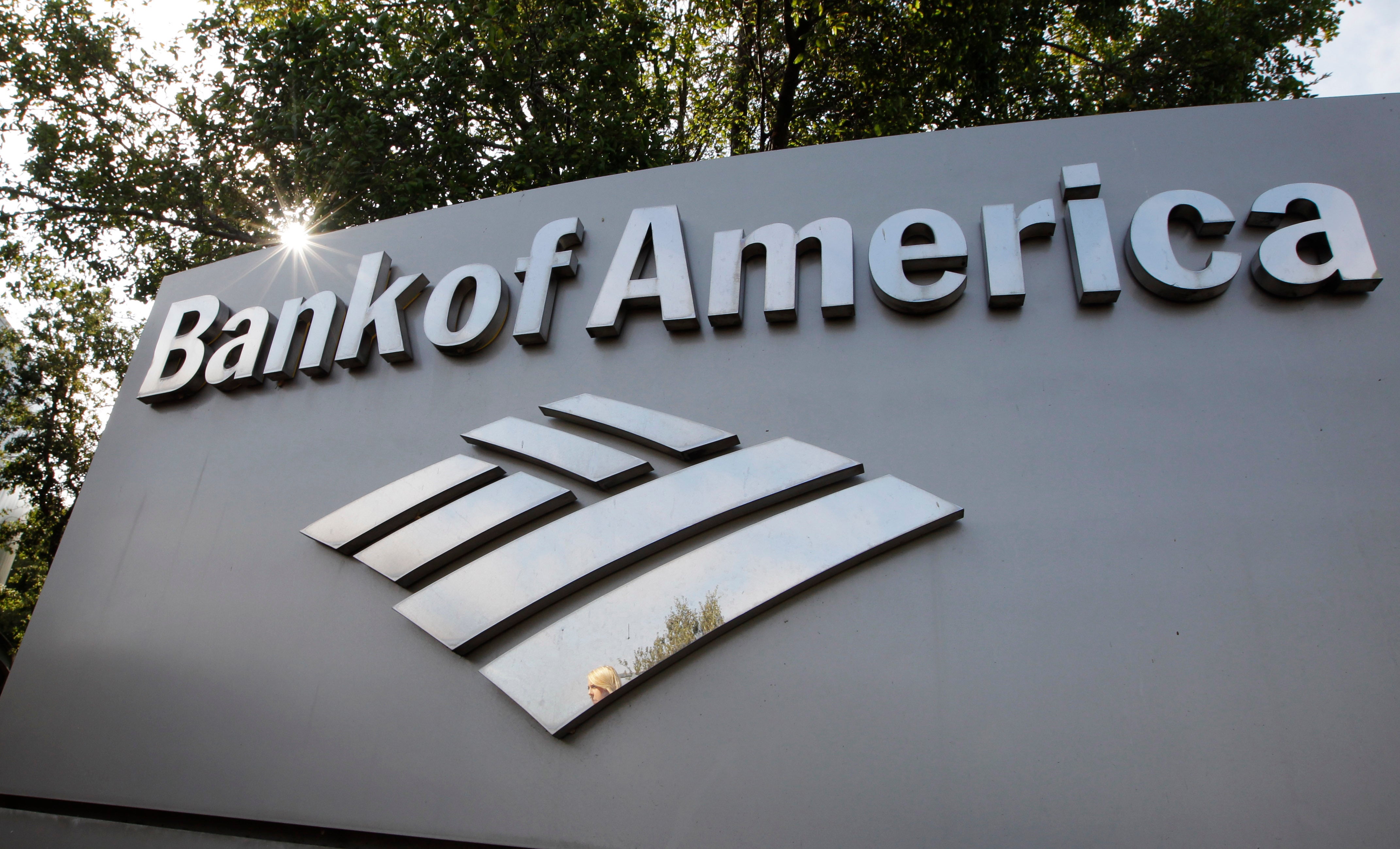Bank of America's overdraft fees down 90% under new policy
Bank of America says the revenue it gets from overdrafts has dropped 90% from a year ago, after the bank reduced overdraft fees to $10 from $35 and eliminated fees for bounced checks

Your support helps us to tell the story
From reproductive rights to climate change to Big Tech, The Independent is on the ground when the story is developing. Whether it's investigating the financials of Elon Musk's pro-Trump PAC or producing our latest documentary, 'The A Word', which shines a light on the American women fighting for reproductive rights, we know how important it is to parse out the facts from the messaging.
At such a critical moment in US history, we need reporters on the ground. Your donation allows us to keep sending journalists to speak to both sides of the story.
The Independent is trusted by Americans across the entire political spectrum. And unlike many other quality news outlets, we choose not to lock Americans out of our reporting and analysis with paywalls. We believe quality journalism should be available to everyone, paid for by those who can afford it.
Your support makes all the difference.Bank of America says the revenue it gets from overdrafts has dropped 90% from a year ago, after the bank reduced overdraft fees to $10 from $35 and eliminated fees for bounced checks.
The nation’s largest banks are moving away from the practice of charging exorbitant fees on what are mostly small-dollar purchases after years of public pressure. Bank of America CEO Brian Moynihan told The Associated Press that he expects whatever residual income the bank earns from overdraft fees will come from small businesses using overdraft fees as a convenience.
BofA’s new overdraft fee policy was implemented starting in June. Moynihan said in the policy’s first two months, overdraft fee revenue declined 90% and the bank was seeing fewer instances of the fees being collected. He did not share specifics on the number of instances.
“The remaining (people that get charged overdraft fees) are business owners who are moving money around,” Moynihan said. “It’s not individuals anymore, frankly.”
Starting the middle of 2021, regional banks such as PNC and Capital One, as well as the online bank Ally, announced plans to eliminate overdraft fees or find ways to curtail them dramatically. Most of the banks said the fees largely impacted the poor and racial minorities, or that the pandemic had shown the banks they could earn big profits without charging fees on their customers, in explaining their decision.
While notable, consumer advocates considered these announcements symbolic wins, not substantial reform for the industry.
However, Bank of America's decision in January to eliminate non-sufficient fund fees — sometimes referred to as a bounced check fee — as well as cut overdraft fees to $10 is credited with shaking up the industry. BofA for years was cited as one of the top collectors of overdraft fees and still brought in slightly more than $1 billion from such fees last year. Other banking giants such as Wells Fargo, JPMorgan Chase and Truist all changed their overdraft fee practices shortly after BofA’s announcement.
BofA took in $1.63 billion in overdraft fee revenue in 2015, the first year banks were required to publicly report overdraft fee revenues to regulators. Its overdraft fee revenues have been declining as the bank took incremental steps to reduce its reliance on fees. Roughly half of all accounts now opened at BofA do not allow the customer to overdraft.
____
AP Personal Finance Writer Adriana Morga contributed to this report from New York.